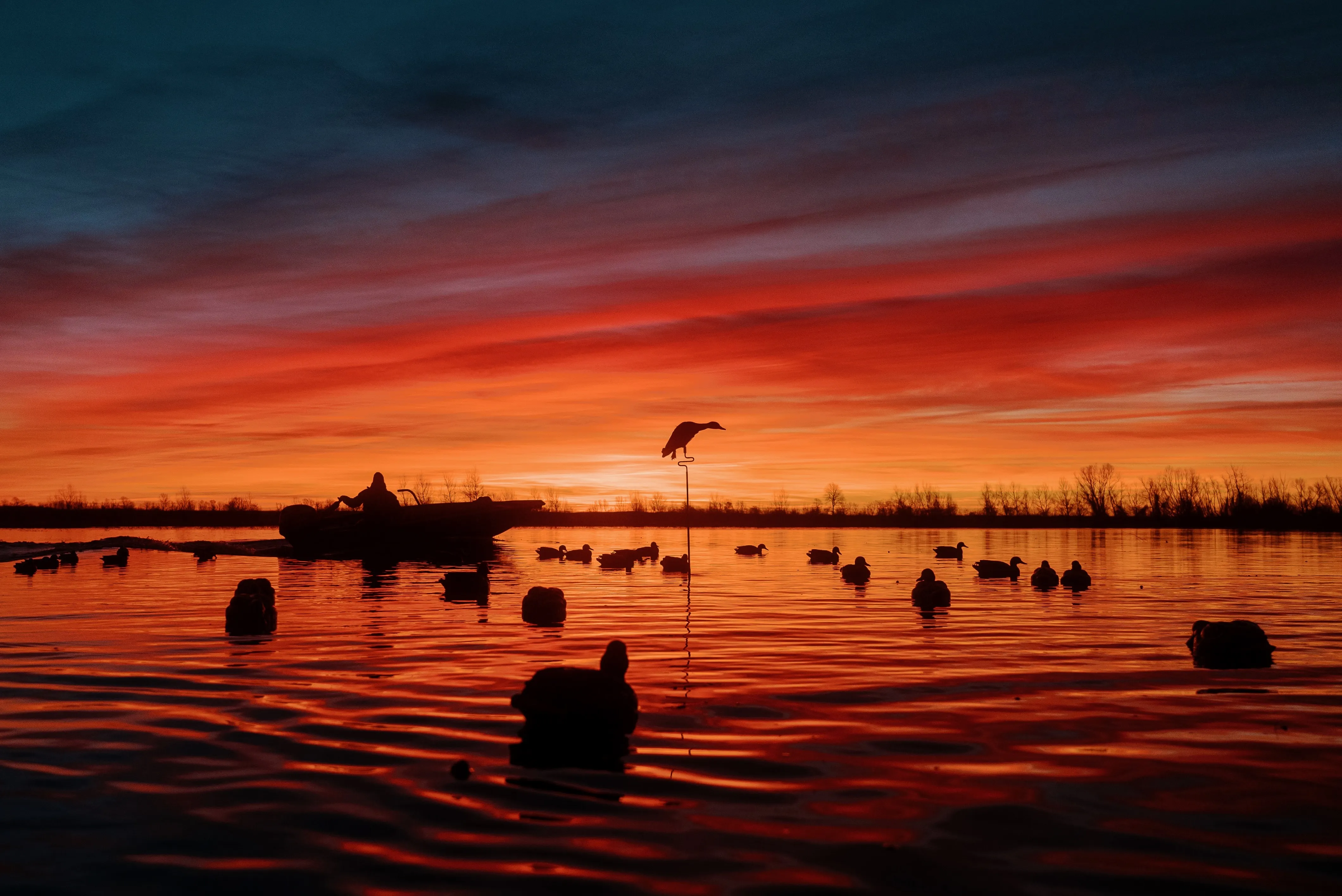TrophyCast - Ep 17 - We're Back! w/ Christian Curtis of Banded!
Duck season is here! And in honor of the opening of the season in Missouri, we are releasing a podcast that we recorded this past January with Christian Curtis, one of the founders of Banded and a friend of Trophy Properties and Auction.

From Passionate Hobbyist to Industry Pioneer
Curtis’s journey into the hunting industry began with his passion for duck hunting. Growing up in the Midwest, he honed his skills on local rivers and wetlands before pursuing a career as a hunting guide. Curtis recalls the camaraderie and thrill of these early days, from making modest two-mallard limits to the satisfaction of a successful hunt with friends. This grassroots experience laid the foundation for his later career.
But Curtis’s big break came when he joined Avery Outdoors, a groundbreaking brand in waterfowl gear at the time. Working at Avery, Curtis gained expertise in product development, helping design everything from blinds to decoys, and later building his own company, Bandit Holdings. This journey reflects the broader evolution of hunting gear, where necessity has often driven innovation, resulting in the high-tech equipment hunters rely on today.
The Evolution of Waterfowl Migration and Hunting Grounds
Hunting locations and migration patterns have also shifted significantly, and climate change is just one factor. Curtis and the hosts observe that, unlike decades ago when ducks traveled deep into the southern U.S., many now stop further north, especially in mild winters. As waterfowl migration adjusts, hunters have had to rethink where and when they can find game. Missouri’s Mississippi Flyway remains a popular destination, but unpredictable migration patterns and fewer ducks in traditional areas are a reminder that nature is always changing.
Missouri’s public hunting lands are a notable exception, still providing reliable access to hunting grounds that attract waterfowl. The system is a point of pride for many local hunters, who value the balance it offers between conservation and recreation. It’s also a stark contrast to other states where finding quality hunting land is more challenging, underscoring the importance of thoughtful land management in maintaining hunting traditions.
Tech Takes Over: The Impact of New Tools on Traditional Hunting
One of the most striking themes in the discussion was the role of technology. Today’s hunters have access to advanced tools like high-resolution trail cameras, new duck decoys, and digital platforms that allow them to scout and plan with precision. However, Curtis and his hosts express mixed feelings about these tools. While they increase hunting efficiency, they may also detract from the traditional aspects of the sport.
Trail cameras are a prime example. Curtis and Cleveland shared how some hunters now rely heavily on trail cameras to track game, essentially changing the experience from a hunt to a “wait-and-see” approach. The same could be said for GPS-guided duck calls and other high-tech accessories. As Curtis says, “Hunting is a pursuit, and maybe sometimes it’s okay to leave a little to chance.” It’s a sentiment many hunters, nostalgic for simpler times, can relate to.
Social Media and the Rise of Hunting Influencers
The conversation also touched on social media’s influence on hunting culture. While Curtis admits he personally avoids social media, he acknowledges that Bandit Holdings has benefited from partnerships with influencers who bring visibility to their products. However, authenticity is key. Curtis believes that many influencers can appear inauthentic, creating staged moments that don’t reflect true hunting experiences.
Instead of pursuing social media stars with millions of followers, Bandit Holdings partners with micro-influencers who represent real hunting communities. “People can see through a fake connection,” Curtis notes. “When we find a genuine brand partner, it resonates more deeply with our audience.” This approach aligns with Bandit’s broader mission of authenticity and staying true to the spirit of the sport, even as the industry shifts towards digital marketing.
Land Ownership and the Changing Real Estate Market for Hunters
Land ownership has become a hot topic in the hunting community, especially with the rising popularity of recreational land for hunting and outdoor activities. They’ve observed a shift from large tracts of land toward smaller, more affordable parcels, which allow new buyers to enter the market.
Breaking up larger properties into smaller plots not only makes land ownership accessible but also gives first-time buyers a way to customize their experience. “A lot of people can’t afford 500 acres,” Cleveland explains, “but 40 acres with a pond and some timber is doable and still offers a great hunting experience.” This approach has democratized access to recreational land, allowing more people to participate in the sport and experience the joy of land ownership.
Preserving the Future of Hunting
We all agree that the future of duck hunting will depend on a balanced approach to conservation, land management, and community engagement. With increasing urbanization and fewer spaces dedicated to public hunting, preserving hunting traditions is more critical than ever.
“Hunting is about more than the harvest,” Curtis reflects. “It’s about the places, the people, and the memories.” For Curtis, Cleveland, and many others, duck hunting is as much about connection and community as it is about skill and technique.



